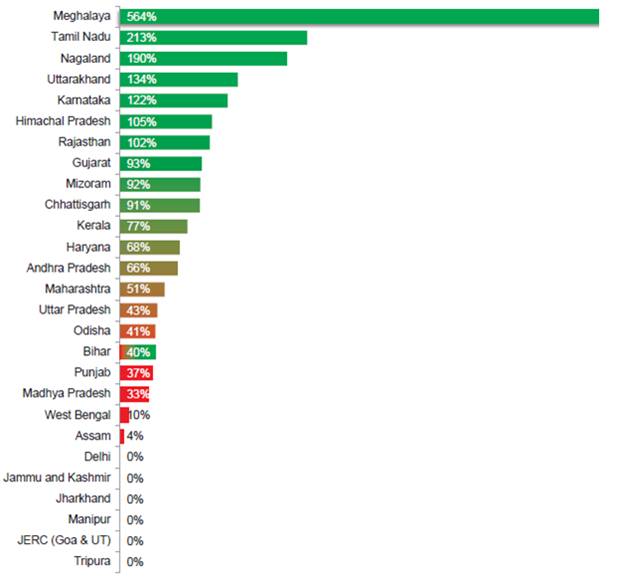Natural resource management and development
 The management of natural resources to meet people‘s requirements has been practiced since the pre-Vedic era. Natural resources such as biodiversity, water, land, biomass, forests, livestock, etc– the very foundation of human survival, progress and prosperity, have been degrading fast, and the unprecedented pace of their erosion is one of the root causes. The demographic and socio-economic pressures notwithstanding, the unmindful agricultural intensification, over use of marginal lands, imbalanced use of fertilizers, organic matter depletion and deteriorating soil health, extensive diversion of prime agricultural lands to non-agricultural uses, misuse and inefficient use of water, depleting aquifers, salinization of fertile lands and water logging, deforestation, biodiversity loss and genetic erosion, and climate change are the main underlying causes. The international debate on natural resource management are in the humid topics revolves around forest, deforestation or forest conservation. In a real sense, every culture of a social system, traditionally, is the result of people‘s action to survive and their attempts to optimize the use of available resources, i.e., soil, water and vegetation. During the last two decades, primarily through the watershed programmes, considerable emphasis has been placed on natural resources management.
The management of natural resources to meet people‘s requirements has been practiced since the pre-Vedic era. Natural resources such as biodiversity, water, land, biomass, forests, livestock, etc– the very foundation of human survival, progress and prosperity, have been degrading fast, and the unprecedented pace of their erosion is one of the root causes. The demographic and socio-economic pressures notwithstanding, the unmindful agricultural intensification, over use of marginal lands, imbalanced use of fertilizers, organic matter depletion and deteriorating soil health, extensive diversion of prime agricultural lands to non-agricultural uses, misuse and inefficient use of water, depleting aquifers, salinization of fertile lands and water logging, deforestation, biodiversity loss and genetic erosion, and climate change are the main underlying causes. The international debate on natural resource management are in the humid topics revolves around forest, deforestation or forest conservation. In a real sense, every culture of a social system, traditionally, is the result of people‘s action to survive and their attempts to optimize the use of available resources, i.e., soil, water and vegetation. During the last two decades, primarily through the watershed programmes, considerable emphasis has been placed on natural resources management.
The Natural Resource Management (NRM)-specific policy and action challenges notwithstanding, equally formidable other challenges directly impacting sustainability and productivity of natural resources are: technology fatigue, huge technology transfer/adoption gaps, collapse of the extension system and serious knowledge deficits and gaps, poor institutional credit and insurance supports, non-remunerative prices and highly inadequate marketing infrastructure and regulations, huge post-harvest losses and negligible value addition, worsening input-risk-output imbalance, non-existent and/or ineffective enabling mechanisms and regulatory frameworks, and capital stock depletion and inadequate investment.
Natural resources are particularly important for the poorest and most vulnerable communities in the world. The poor are more heavily dependent on ecosystem services and therefore most severely affected by deteriorating environmental conditions and factors limiting resource access. While climate change is not the only threat to natural resources and livelihoods, climate-induced changes to resource flows will affect the viability of livelihoods unless effective measures are taken to protect and diversify them through adaptation and other strategies. For the poorest and most vulnerable, these strategies should include ecosystem management and restoration activities such as watershed restoration, agroecology, reef protection and rangeland rehabilitation. In fact, these activities can represent ―win-win‖ approaches to climate change adaptation, as they serve immediate needs and bring immediate benefits to local communities while also contributing to longer-term capacity development that will create a basis for reducing future vulnerabilities.
If adaptation strategies should reflect the dynamics of peoples‘livelihoods, then adaptation must be seen as a process that is itself adaptive and flexible to address locally-specific and changing circumstances. The responsibility for adaptation lies with those who stand to gain the most. While those with the least capacity to adapt are the most vulnerable, they are also the most likely and most motivated to take conscious adaptation actions. For the poor and vulnerable, the actions that they take will be constrained by their limited assets and capabilities, but they will also be the most appropriate given the specific local manifestations of climate change impacts. These actions should be supported by external agencies to build up the asset base of the poor.
In the last decade there has been an increase in understanding of tropical rain forest ecosystems and greater recognition of the interdependence of the environment and the economy. Concern over the loss of tropical rain forests and their biodiversity, and its implications for potential global climate change, has led to increasing political awareness of the serious consequences of human development and forest mismanagement.
Author’s Bio;
 Essay is written by Omkars Shukla. He is currently pursuing master’s degree (PGDM) in Rural Management at Xavier Institute of management, Jabalpur (XIMJ). He can be reached at shukla.om999@gmail.com.
Essay is written by Omkars Shukla. He is currently pursuing master’s degree (PGDM) in Rural Management at Xavier Institute of management, Jabalpur (XIMJ). He can be reached at shukla.om999@gmail.com.
References and further readings:
Do you have a flair for writing? Interested in environmental issues? Why don’t you submit an article for the GreenCleanGuide 2013 contest? For contest rules, please visit this link.




